Another cottage industry that Albay is famous for is their abaca handicraft and furniture manufacturing. Abaca (100% biodegradable and eco-friendly) and abaca-based products have been a consistent dollar earner for the Philippines, one of only two abaca producers in the world (the other is Ecuador). At the top of the list of manufacturers is Natural Carpet Industries (NCI) in Camalig. NCI is one of the big abaca processors that supply high‐end abaca products.
We dropped by NCI’s 7,300 sq. m. production area to observe the abaca product manufacturing process. On arrival, we were welcomed by the 36 year old Camalig-born owner Mr. Felipe Noe Morin Napa Jr., Sumlang’s barangay captain and one of a pool of entrepreneurs and artists adept in creating innovative styles and designs that are in sync with global trends.
In 1995, Napa started his small handicraft business as Napa’s Handicraft, mortgaging almost all of the Napa family’s properties to set it up. Manufacturing abaca rugs, rattan furniture and fixtures, it has survived tough competition from other handicraft producers, both here and abroad, paying its workers per piece of any hand-woven product they created.
Now, NCI is debt-free, boasting of a complement of 120 skilled and experienced weavers and craftsmen. They create world-class products largely to fill the demand of the export market, particularly in Australia, Canada, Middle East, Europe and China. NCI has boosted Albay’s abaca industry and created more jobs in the province. In 2014, Felipe received the Outstanding Albayano Award for Decorative Arts.
One of their major products is natural, eco-friendly abaca carpets which are available in so many styles and colors. Other products include abaca placemats, ottoman, carpets, sofa, beds, jelly lamps, blinds, baskets, mirror frames and, if you want, a coffin made from abaca. Like other manufacturers, they continue to produce diverse and unique products that have undergone meticulous research and conceptualization in order to ensure each product’s functionality and intricate designs.
The manufacturing process begins with the fiber first being extracted from the trunk of the abaca (Musa textilis) plant. These are stripped by hand, dried, classified according to size, color and texture, and then segregated and stored in bales. Before weaving, each individual fiber is sorted out to ensure the consistency of the rug’s strength and superiority. The selected strands are then delicately and very carefully handwoven. From the cutting of a plant up to the start of weaving process takes about a month and a half. A 3 x 7-foot carpet takes one person a week to weave while bigger pieces can take about a month, using many different patterns.
Natural abaca fibers are twisted and woven by hand. I observed a woman demonstrating how to weave an exquisite, boldly textured 14” x 19” placemat. She first collected the pinuron (strands of abaca fiber) using the spinning wheel and then takes two separately collected pinurons and alternately inserts the threads into the wooden handloom.
She then steps on the left break, inserts the first pinuron to the left side of the thread, then pounds it. Next, she steps on the right break, inserts the second pinuron to the right side of the thread, pounds it.
Natural Carpet Industries (NCI): Napa Bldg., Zone 5, Brgy. Sumlang, Camalig, 4502, Albay. Tel: (02) 738-9963. Mobile number: (0917) 570-1830 and (0932) 811-1704. E-mail: napa_felipenoejr@yahoo.com.
Municipal Tourism, Culture and Arts Office: Camalig Tourism and Pasalubong Center, Brgy. 2, Camalig, Albay. Mobile number: (0927) 621-3315. E-mail: camalig_tourism@yahoo.com.
Provincial Tourism and Cultural Affairs Office (PTCAO): Albay Tourism Bldg., Albay Astrodome Complex, Capt. F. Aquende Drive, 4500 Legaspi City, Albay. Tel: (052) 481-0250 and (052) 742-0242. E-mail: albaytourism@yahoo.com and albaytourism@gmail.com.

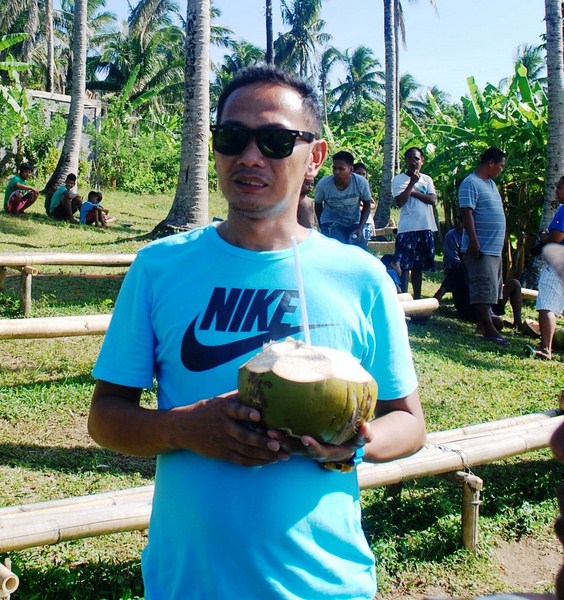
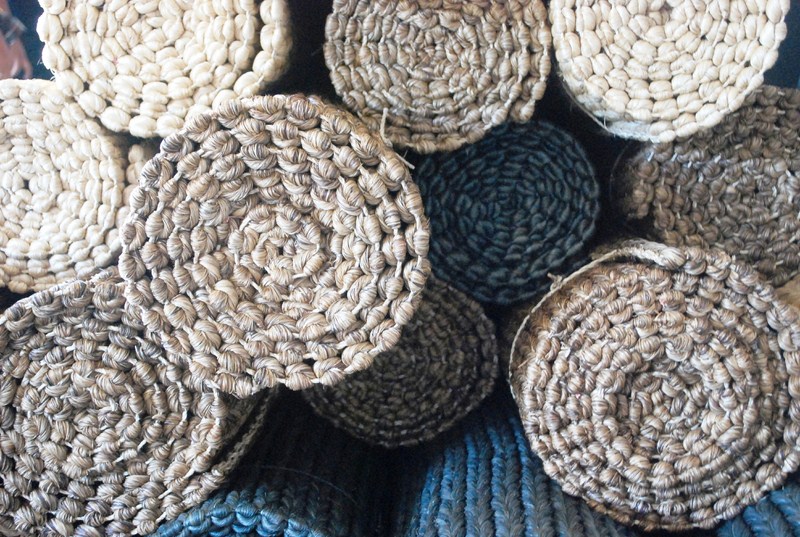
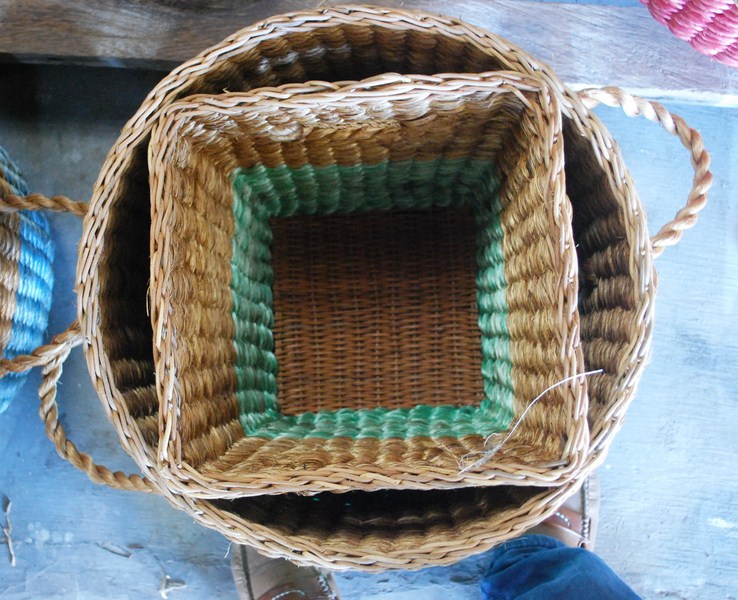
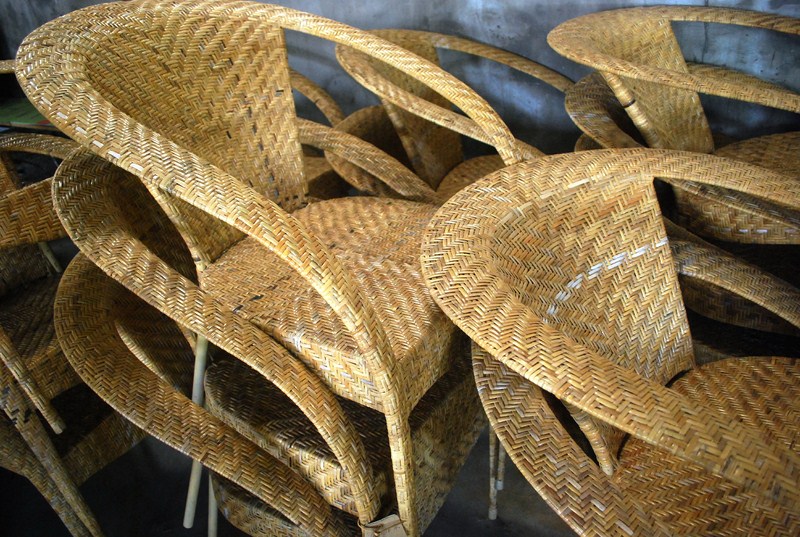
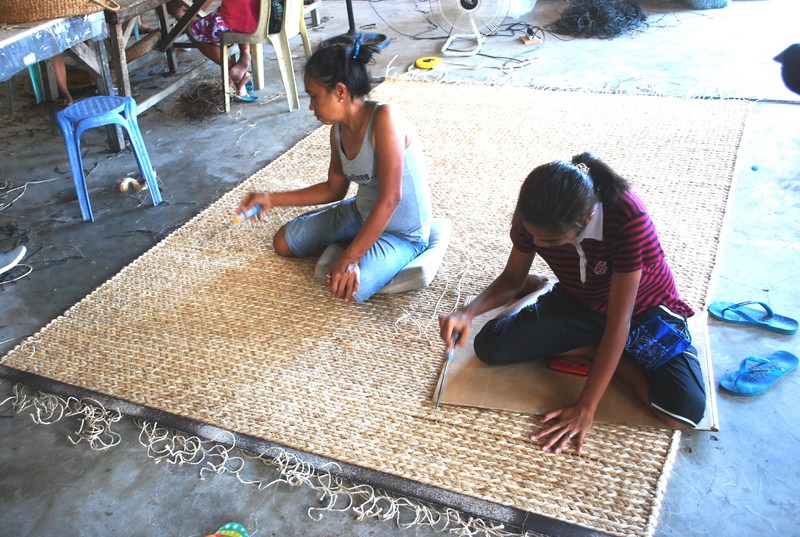
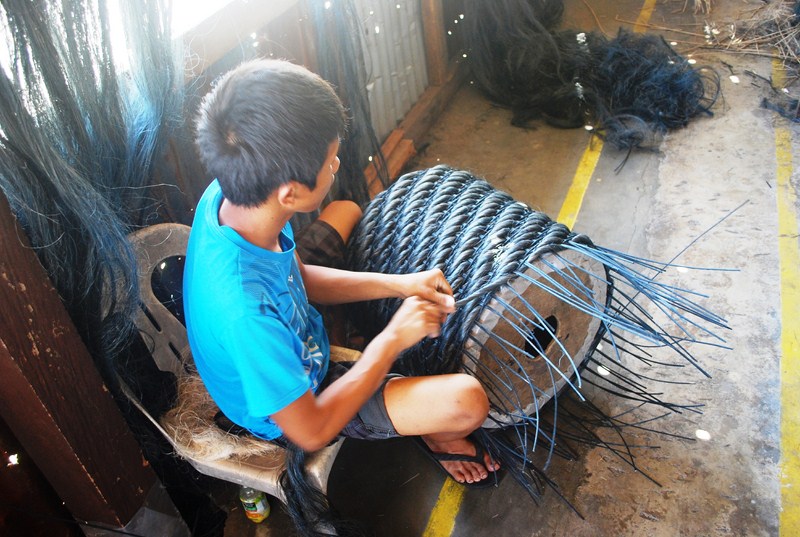
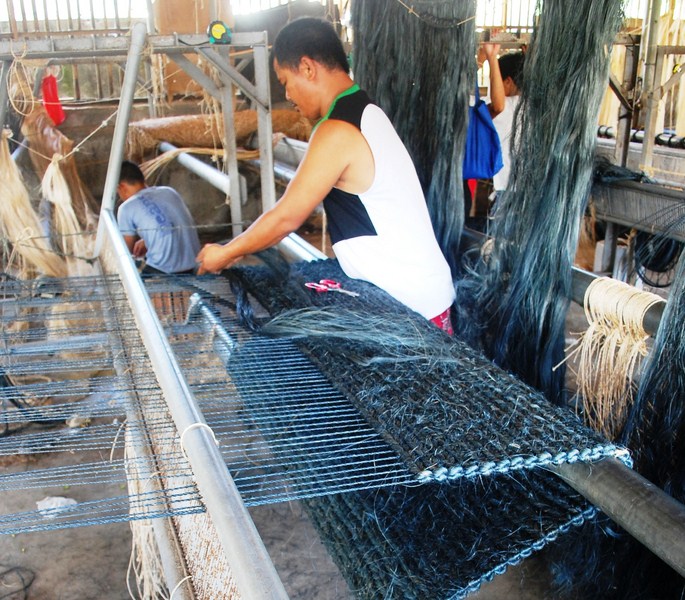
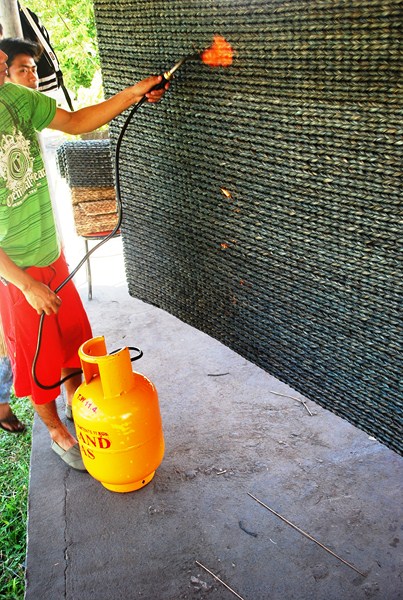
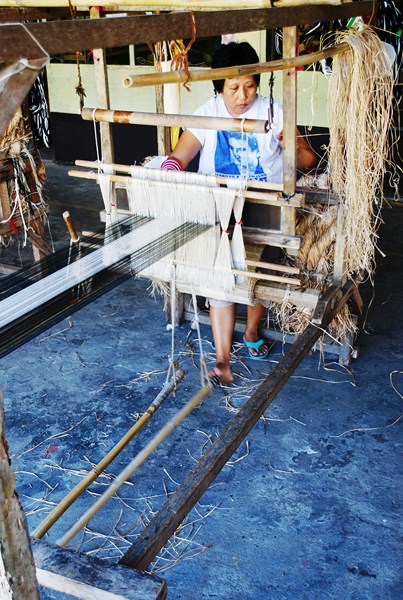
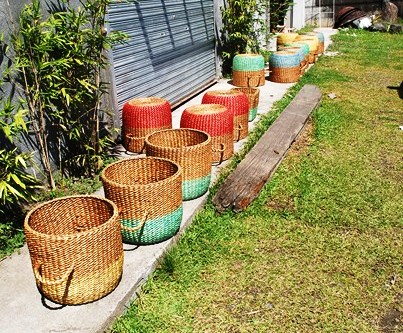
please send all information regarding all your products for flooring area rugs
Please forward your inquiry to Mr. Felipe Noe, Jr. at napa_felipenoejr@yahoo.com.